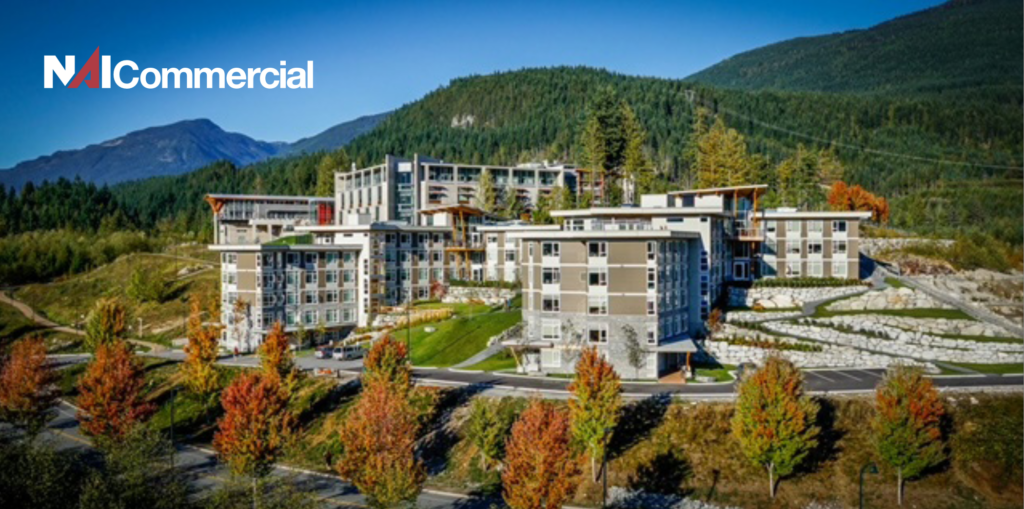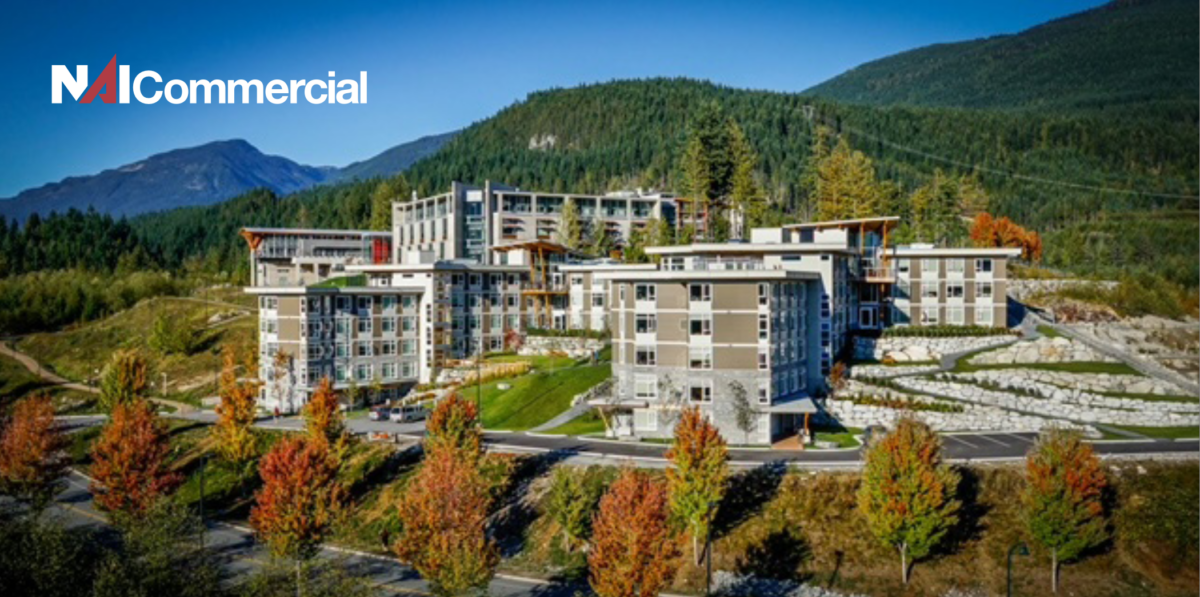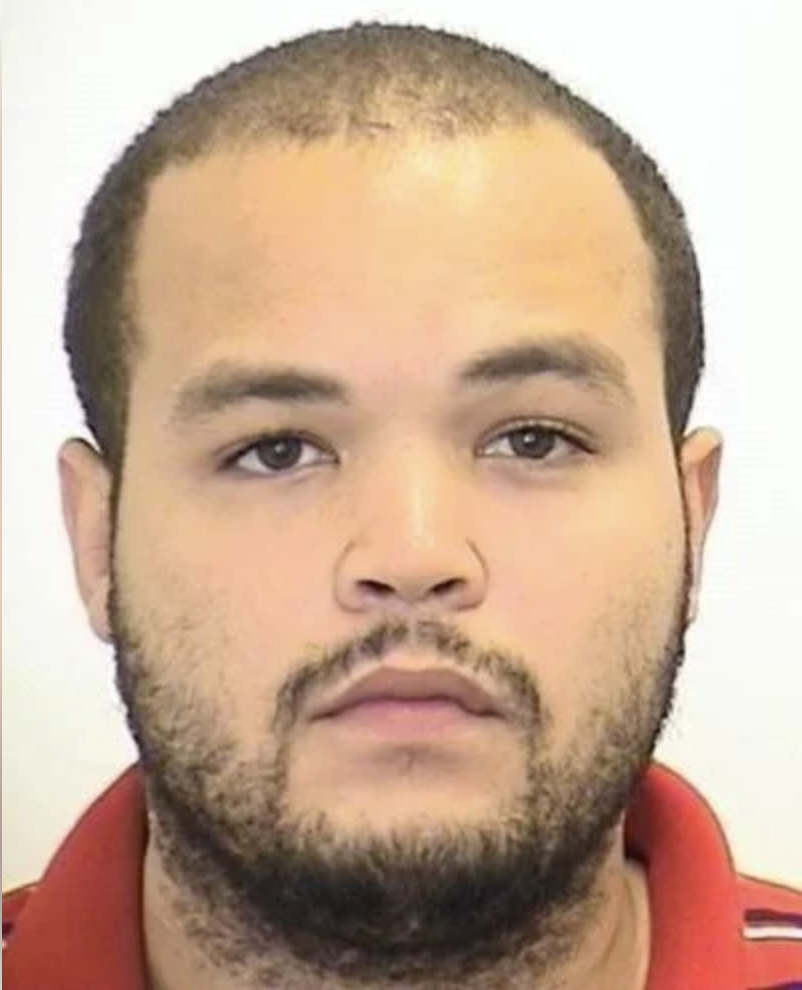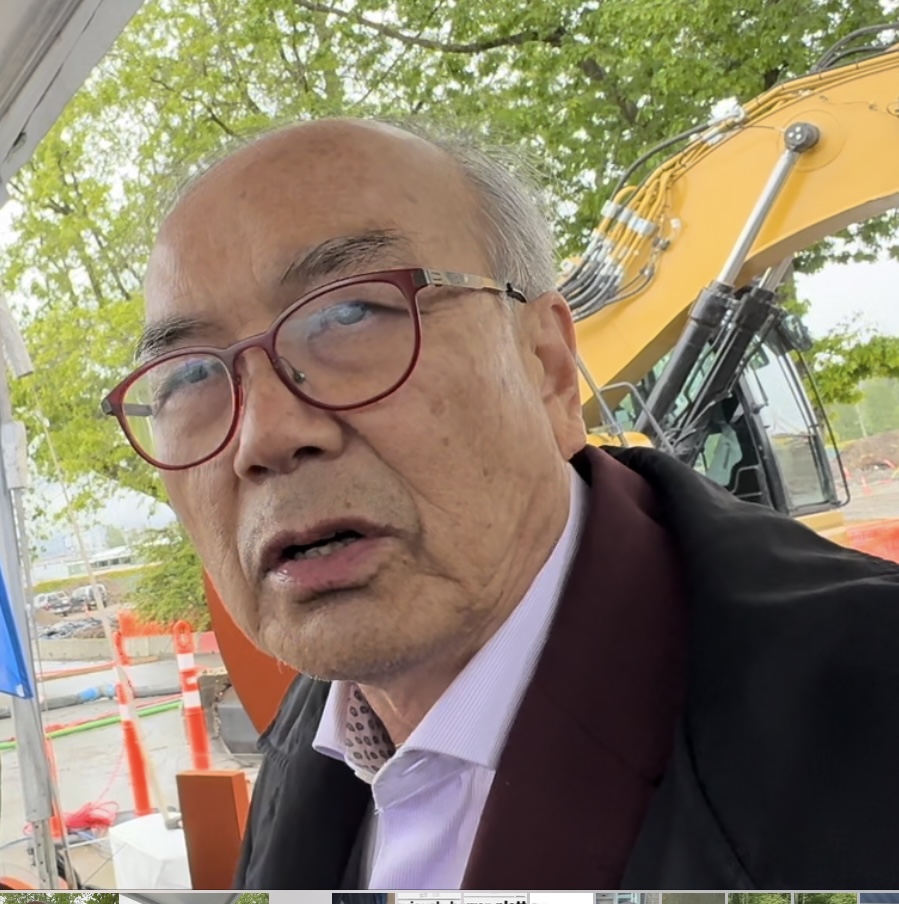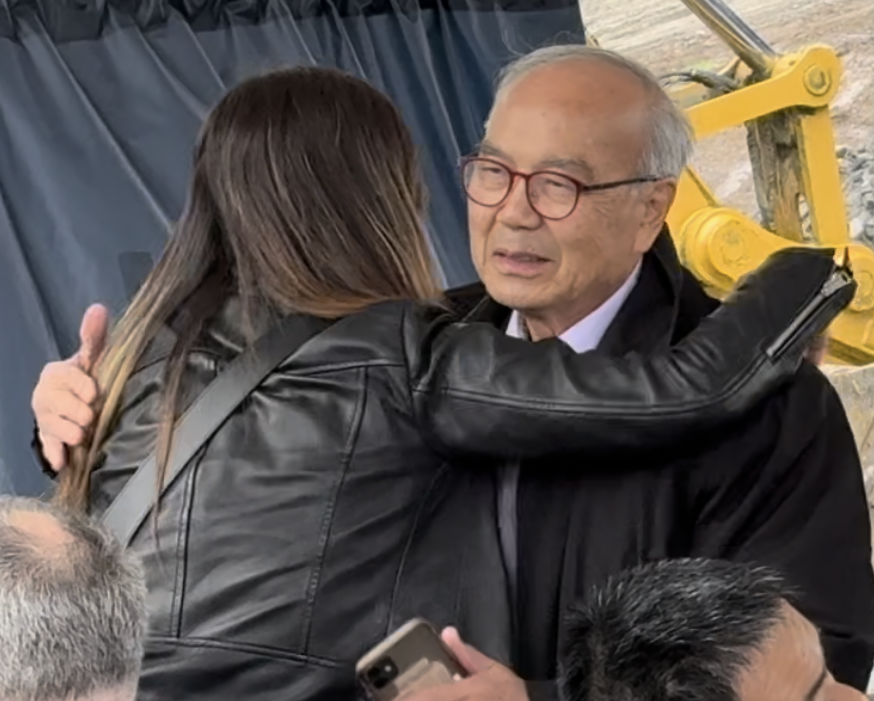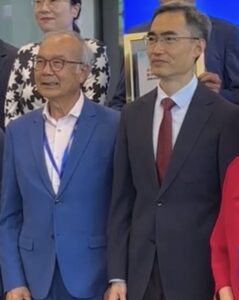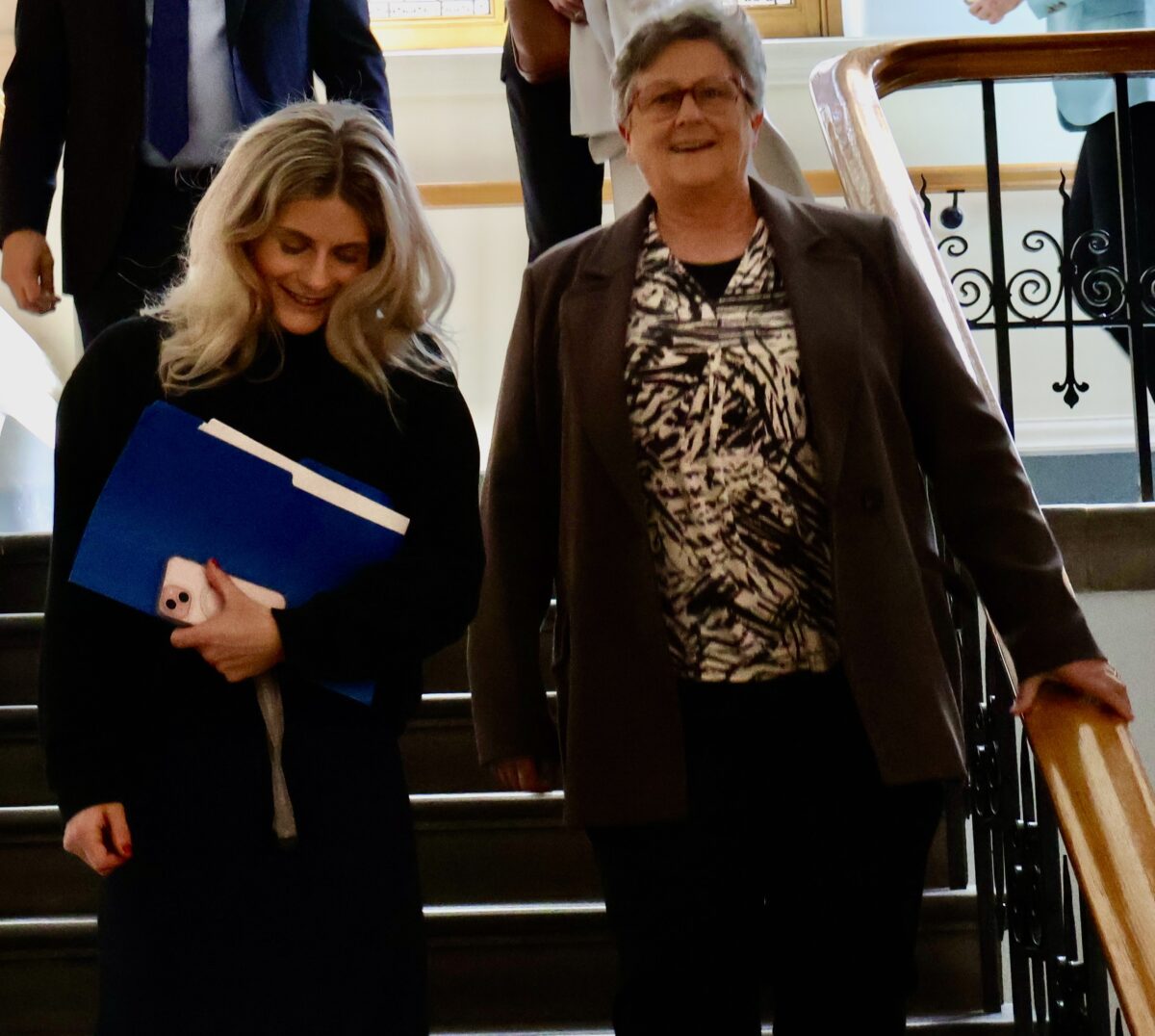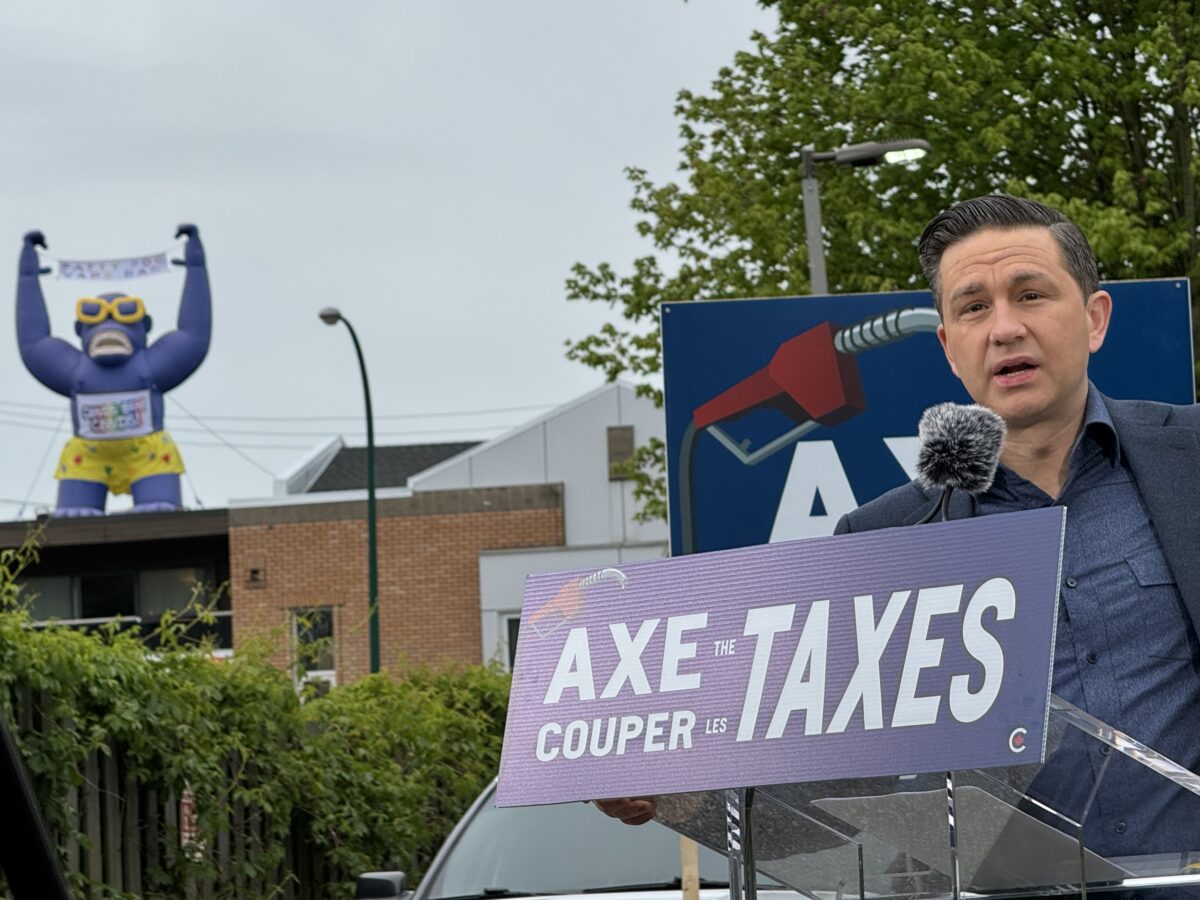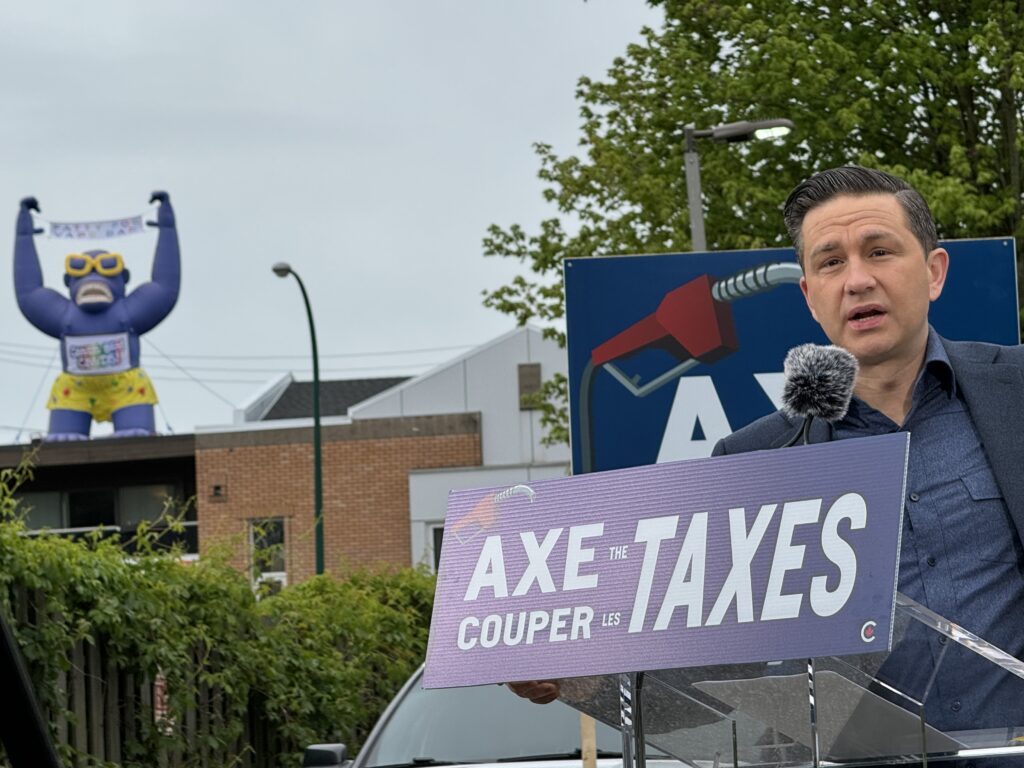Bob Mackin
The University of British Columbia’s investment subsidiary listed holdings in Russian companies sanctioned by the Canadian government.
The June 2023 UBC Investment Management (UBCIM) disclosure reports show investments in Bank VTB, Gazprom, SberBank Rossii and Transneft, among more than 8,000 entries.
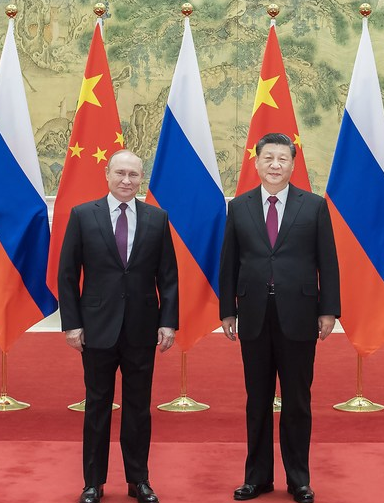
Vladimir Putin (left) and Xi Jinping during the Beijing 2022 Winter Olympics (PRC)
UBCIM does not disclose the dollar value or number of shares held, but the percentage of shares of each security in the vast portfolio. In the staff pension plan, for instance, the Gazprom shares are the biggest of the four Russian securities at 0.00116%. By comparison, the top 20 holdings range from Canadian National Railway Co., at 0.69% to Open Text Corp. at 0.25%.
In the endowment pool, UBCIM reported the Gazprom shares comprised 0.00196% of the portfolio. Microsoft Corp. tops the list at 1.28%.
After Russia’s February 2022 invasion of Ukraine, B.C. Investment Management Corp. (BCI), the province’s public sector pension fund, bowed to pressure from the public and politicians and announced it would divest its remaining $107 million of Russian stocks.
UBC spokesperson Matthew Ramsey said the university must balance policies with legal and fiduciary obligations. UBCIM, however, is stuck with the Russian shares.
“Due to trading in Russian stocks being inaccessible to most investors in western nations since 2022, public news indicated that some institutional investors, including large pension plans that manage their investment portfolios internally, have chosen to write down the value of certain Russian exposures to zero,” Ramsey said in a statement to theBreaker.news. “While we cannot comment on the decisions of other organizations, UBC manages its investments through external investment managers in pooled funds and reports the holdings values provided by the external investment managers whose reporting practices are regulated by security regulators such as the U.S. Securities and Exchange Commission.”
Israel, not Russia, is the target of protest campers that took over MacInnes Field on the Point Grey campus April 29. They are demanding UBC divest from Israeli companies and companies supplying Israel in its war against Hamas terrorists in Gaza.
On May 7, UBC President Benoit-Antoine Bacon said the endowment fund does not directly own any stocks in companies identified by the activists campaigning for a ceasefire in the war and end to Israel altogether.
“Capital is held in pooled funds and managed by external investment managers, with the identified companies accounting for about 0.28% of the endowment fund,” Bacon said in a statement.

Benoit-Antoine Bacon (UBC)
Bacon said UBC is a signatory to the United Nations-supported Principles for Responsible Investment and its investment managers are “continuously adjusting their strategies based on the integration of environmental, social and governance considerations.”
“We would welcome a respectful and robust discussion with student representatives from UBC on this issue,” Bacon wrote.
Research by the UBC Social Justice Centre and UBC Graduate Students 4 Palestine estimated UBCIM holds $113.85 million of shares in 88 companies that the two groups accuse of being “complicit” with Israel, such as Israeli government contractor Microsoft.
They estimated the 1.28% portfolio percentage of Microsoft shares translates to $28.12 million.
Around 100 anti-Israel protesters stepped-up their campaign May 15 by occupying part of the President’s Office premises in the Koerner Library building. Officers from the Lower Mainland District Integrated Tactical Support Group, a mix of RCMP and municipal crowd control police, attended the scene.
Despite that, on May 16, Bacon expressed “willingness to engage in reasoned dialogue” with student representatives of the protest camp.
An analysis of the UBCIM holdings reports shows investments in Qatar, the oil and gas-rich Middle Eastern backer of the Hamas terror organization. Deutsche Welle reported last November that Qatar has funded Hamas, ruler of Gaza since 2006, to the tune of $1.8 billion.
Qatar Islamic Bank shares comprise 0.0251% of endowment holdings, eclipsing the 0.0195% represented by Qatar International Islamic Bank.
UBCIM also holds shares in Qatar Fuel Company, Qatar Gas Transport Nakilat Co Ltd, Qatar National Cement Company, Qatar Navigation, Industries Qatar and Vodafone Qatar.
Like Qatar, neither China nor Russia consider Hamas to be terrorists.
China has helped cushion Russia, its biggest ally, from the impact of western sanctions since Vladimir Putin ordered the invasion of Ukraine.
UBCIM holds shares in a significant number of Chinese companies in the fields of finance, resources, pharmaceuticals, transportation and technology. Many of them are controlled by the Chinese Communist Party.
UBCIM’s Chinese holdings list includes 104 companies with Shanghai in the name and 81 each for Shenzhen and Zhejiang. There are 70 references to Beijing and 64 to Jiangsu.
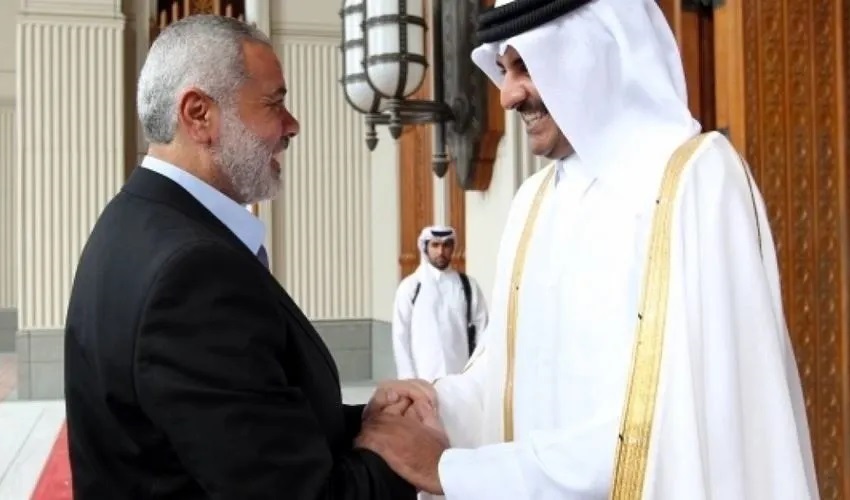
Hamas political leader Ismail Haniyeh (left) and the Emir of Qatar, Sheikh Tamim bin Hamad. (Palestinian Information Center)
The biggest holding by portion of shares is Tencent Holdings Ltd. at 0.32% in the staff pension plan and 0.66% in the endowment fund. Tencent is the parent company of the WeChat app. Communications Security Establishment warning that WeChat “has been used to spread misinformation, disinformation and malinformation and propaganda specific to the Chinese diaspora.”
Other Chinese investments include: Agricultural Bank of China Ltd., Bank of China Ltd., China Merchants Bank Co Ltd., Industrial and Commercial Bank of China Ltd., China Construction Bank Corp., China Citic Bank Corp Ltd., China Minsheng Banking Corp Ltd., China Evergrande Group, China Overseas Land & Investment Ltd., Ping An Insurance Group Co of China Ltd., China Pacific Insurance Group Co Ltd., PetroChina Co Ltd., China Petroleum & Chemical Corp. and China Coal Energy Co Ltd.
Also: Baidu Inc., BYD Co Ltd., Cansino Biologics Inc., Country Garden Services Holdings Co Ltd., Geely Automobile Holdings Ltd., Poly Property Group Co Ltd. and Xiaomi Corp.
At the end of the fiscal year in March 2023, UBCIM managed a total $5.8 billion in assets across five funds. The two largest are the main endowment pool ($2.9 billion) and staff pension plan ($2.4 billion). The staff plan serves more than 17,000 employees, retirees and deferred members. The endowment boasts delivering more than 172,000 awards worth $308 million to students since the 1920s.
UBCIM relies heavily on its Chinese investments. CEO Dawn Jia, in the 2023 annual report, noted a “return of confidence” in China after the end of pandemic lockdowns in late 2022.
“In the medium term, the U.S. government’s economic decoupling from China, along with the de-risking strategies embraced by other Western countries, will increase inflationary pressures as developed economies transition supply chains and absorb higher labour costs,” Jia wrote. “Meanwhile, the intensifying impacts of climate change are creating both macroeconomic risks and direct threats to corporate bottom lines — against a broader backdrop of extreme weather events, natural disasters, displaced populations and heightened geopolitical tensions.”
UBC plans to divest fossil fuels investments by 2030.
A House of Commons committee report last December was harshly critical of Canadian public pension funds, including BCI. The Special Committee on the Canada-People’s Republic of China Relationship said they should avoid investing in Chinese companies that abuse human rights.
“Research and reporting from non-governmental organizations, journalists and academics has revealed that some Canadian pension plans are investing in such companies through passive investments, running contrary to the values of Canadians,” the report said.
Support theBreaker.news for as low as $2 a month on Patreon. Find out how. Click here.
Bob Mackin
The University of British Columbia’s investment
